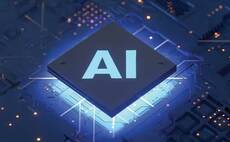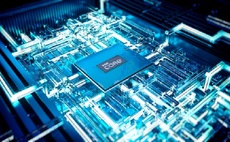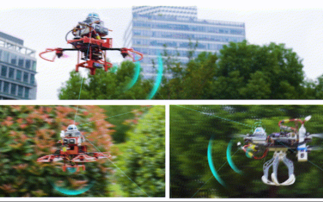Computers used to be monolithic beige boxes on employees' desks, which reinforced the idea that ‘the office' was a static place to work - a destination where people sat in front of big, impersonal technology that could make even the most creative tasks feel like a chore.
Much has changed over the past four decades since the popular advent of mobile working. For many organisations, ‘the office' is now a mindset. Laptops - and the mobile technologies which stemmed from them - have freed us to communicate, innovate, and collaborate wherever we need to be.
Dynabook, formerly Toshiba, has been at the heart of this transformation for four decades, bringing us many of the innovations that created mobile working today.
Journey to mobile working
The original portable computers in the early 1980s were specialist business tools for the few that could justify it, or a status symbol for the wealthiest in society. Meanwhile, while they were technically ‘portable', the reality was that these devices were heavy and unwieldly.
But these devices set a journey in motion. As technology rapidly evolved, the devices shrunk in size, grew in processing power and dropped in entry price. With shrinking semiconductor manufacturing process nodes, mobile working became an increasingly realistic aim. The world's first mass-market laptop, Toshiba's T1100, launched in 1985, had technical specifications to rival the leading desktops of the day, and brought mobile to a new generation.
The subsequent arrival of the Internet soon ignited the value and appeal of the laptop. Users now not only had their work at their fingertips, the whole digital world was now theoretically in reach. It is a milestone that has led to the gradual evolution of digital collaboration and communication, and even changed the nature of work itself. The workplace increasingly shed its ties to the office and 9-to-5 - becoming wherever and whenever it was needed to be.
Today we are almost always connected. We owe this as much to advances in battery technology as we do breakthroughs in computer science. It doesn't matter how powerful or portable your device is if the battery life falls short.
In 1995, Toshiba's laptops were the first to use lithium ion batteries, ushering in a new era in portable computing performance through lighter and longer-lasting power sources. This was crucial to the countless advances in mobile devices that followed as we rely on lithium ion batteries to this day.
Evolution of ergonomics
With these reliable and long-lasting batteries enabling mobile working, a platform was created for manufacturers to focus on the additional ergonomic and security features which are so important to an effective mobile working infrastructure. While workers could work on the go, the traditional hinged laptop had its limitations, and lacked the suitability for all the industries which now demanded mobile computing.
In 2002, Toshiba brought the first full performance convertible tablet PC to the market, paving the way for the increasingly popular detachable devices we see today. Since then, developments such as touchscreen and widescreen have also come to the fore, allowing IT managers to select from a range of devices suited to diverse industries or job roles, from construction to education.
Challenging security threats
As businesses become more digital and global, devices have also evolved. Today's laptops have become light yet durable, mobile yet connected so that employees can work equally well in the office, a coffee shop or at an external meeting. But against the backdrop of these innovations, laptops still need to be secure. Over the last 10 years cyber-attacks and breaches have not only become increasingly common, but also more severe. According to research, the average cost of a cyber-attack now exceeds $1.1m.
Dynabook has played a key part in tackling security challenges with frontline security features such as biometrics. Given advances in hacking, social engineering-based attacks and brute-force password cracking, the humble password isn't enough on its own. Multi-factor authentication offers an additional layer of protection, with the likes of facial recognition technology and fingerprint readers providing peace-of-mind for users carrying sensitive data or IP on their mobile devices.
The past two years have seen hardware-level vulnerabilities take centre stage in the cyber security space. Malicious actors have realised that secure software is useless if the firmware and hardware beneath it contain fundamental flaws. Dynabook has been proactive in response, developing its own BIOS in-house to ensure truly secure access and control.
Dynabook has been a crucial part of the evolution of the laptop since its popularisation in 1985. With both our longstanding and new partners, we possess the heritage and expertise to remain at the forefront of laptop innovation moving forwards into an ever-more challenging, yet exciting, IT landscape.
Find out more about dynabook's DNA and discover our latest devices here: http://uk.dynabook.com/generic/why-dynabook/



















